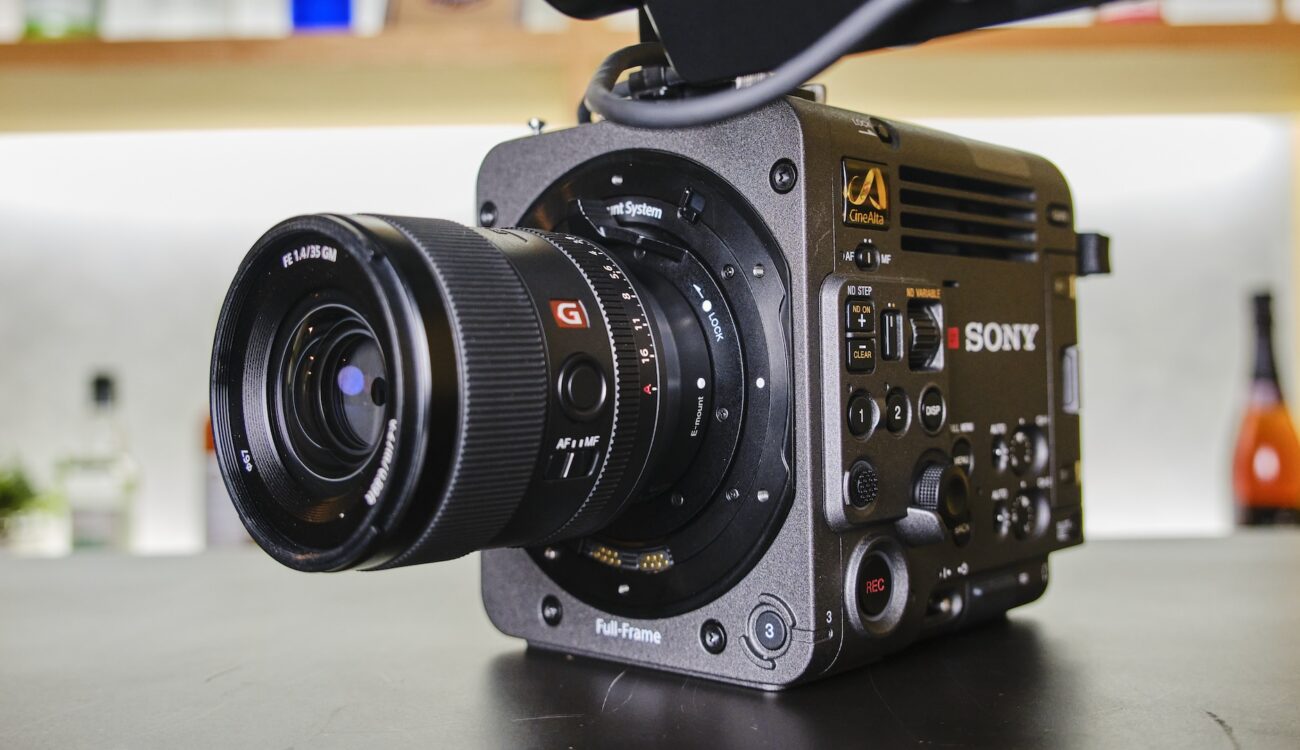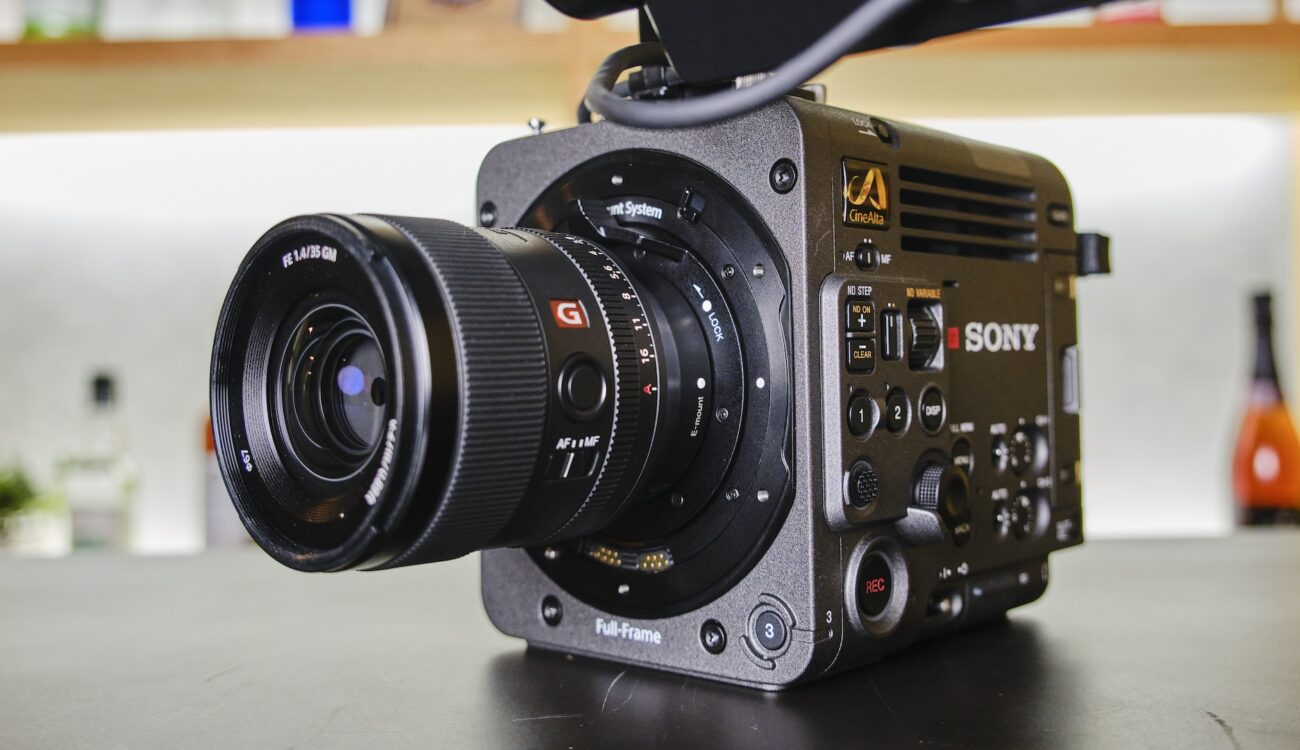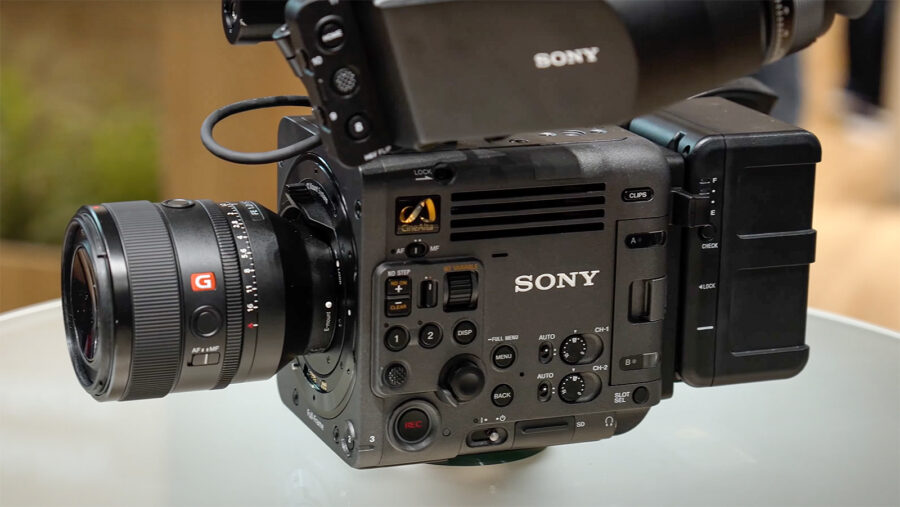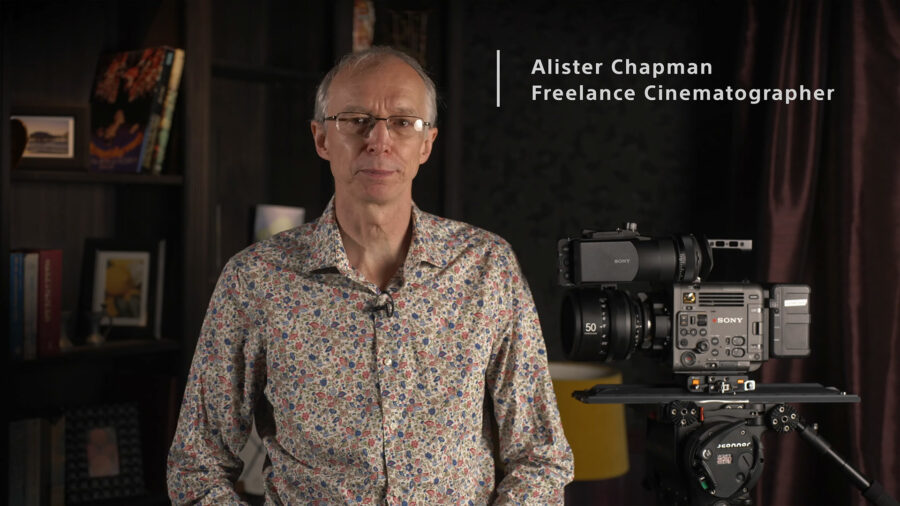

Sony BURANO is a CineAlta digital cinema camera capable of shooting up to 8.6K video, featuring the X-OCN LT RAW and XAVC H codecs, IBIS, built-in ND, CFexpress B slot, and more. Our colleague Alister Chapman made four video tutorials for the camera covering the basic camera configuration, scan modes and codecs, lenses, stabilization, variable ND filter, and fast hybrid AF. These videos are now available on YouTube free of charge.
The first video covers the general configuration of the camera and some details on the “Home” page menus and main menu system. The second video covers the different scan sizes and the corresponding codecs that are included in Burano. The third covers the lens mount, IBIS, and variable ND filter, and the fourth video covers Burano’s fast hybrid AF autofocus system.

Sony BURANO is the company’s latest CineAlta digital cinema camera that also happens to be the first PL-mount camera with built-in IBIS, and the first camera that combines IBIS and built-in ND. It records video in up to 8.6K resolution, and features the X-OCN LT RAW codec, or the new XAVC H codec, capable autofocus, up to 4K120 (in S35 crop), and it uses CF Express Type B media.
Check out our first hands-on video (with an interview) or our IBC 2023 talk with Nobutatsu Takahashi-san, General Manager of Sony Cinema Line, which was mainly about the BURANO.
Sony BURANO tutorial videos by Alister Chapman
Alister Chapman is a UK-based freelance cinematographer (DoP/DIT and consultant). He is a Sony Ambassador and ICE (Independent Certified Expert). In the past, we reported on his tutorial videos for many other Sony cameras such as the FX6 CineEI mode guide. His technical knowledge and experience are really valuable for camera operators worldwide.

This time he made four video tutorials for Sony about the BURANO. These are now available free of charge on the Sony YouTube channel. There are four videos, each around 10 minutes focusing on different aspects of the camera. Let’s take a look at them.
1. Camera configuration
The first of four parts in this tutorial deals with the camera configuration. It is divided into the following chapters:
- 0:30 Introduction
- 0:55 Versatile shooting style overview
- 2:47 Configuring for a crewed shoot
- 4:30 Configuring for a solo operation
- 6:12 Operating the LCD Screen / Intuitive menu control
- 8:53 Direct Menu
- 10:35 Mounting the LCD
2. Scan modes and codecs
The second tutorial focuses on the different scan modes and codec options of the BURANO. It is again divided into a few chapters:
- 0:30 Introduction
- 0:55 Scan Modes and Codecs Overview
- 1:40 Scan Modes
- 2:07 FF 8.6K Scan
- 2:25 FF Crop 6K Scan
- 3:35 Super 35 5.8K Scan
- 4:45 S35 Crop 4K HFR 120fps
- 5:37 Future firmware update and Anamorphic lens de-squeeze
- 6:53 Codecs
- 7:12 X-OCN LT
- 8:15 XAVC H
- 9:28 XAVC-I
3. Lenses, stabilization, and variable ND filter
The third tutorial explains the compatibility of lenses, In-Body-Image-Stabilisation, and variable ND filter system of the camera. It has the following chapters:
- 0:30 Introduction
- 0:55 Compatible lens overview
- 1:30 E-mount
- 2:40 PL mount
- 3:07 In Body Image Stabilisation overview
- 4:13 PL Stabilisation (PL mount)
- 4:53 SteadyShot (E-mount)
- 5:15 Gyro Meta Data
- 5:45 Variable ND Filter
4. Fast Hybrid AF
Finally, the fourth video explains the advantages of BURANO’s autofocus with an E-mount lens and how to operate it. It is divided into the following chapters:
- 0:30 Introduction
- 0:55 Fast Hybrid AF Overviews
- 2:05 Touch Focus / Touch Tracking
- 2:47 AF Transition Speed
- 3:37 AF Subject Shift Sensitivity
- 4:25 Focus Area
- 5:12 Subject Recognition AF
- 6:35 Touch Function in MF
- 7:17 AF Assist
- 7:37 Breathing Compensation
Price and availability
The Sony BURANO camera body can be pre-ordered right now for $25,000 (around €25,000 plus VAT in Europe). The expected availability of the camera is spring 2024.
Have you had the chance to work with the Sony BURANO already? How do you like the camera? What do you think of Alister’s video tutorials for this and previous Sony cameras? Let us know in the comments section underneath the article.






